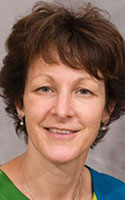If you have symptoms, err on the side of caution, says physician Judith Allen of URMC
By Lynette Loomis

There continue to be many questions about safety measures for COVID-19. Judith Allen of University of Rochester Medical Center is a primary care physician who responds to our latest questions.
Q. Are vaccinated people safe?
While there is good evidence that the vaccine reduces the chance of people having an infection with no symptoms, it is not a guarantee. To be fully effective, it takes two weeks after your second dose to build up some immunity to the virus. If your vaccine only required one dose, it still takes two weeks. COVID-19 is still so new, although we are all weary of thinking about it, aren’t we? There is still much we do not know. For example, how long does the vaccine protect us? How effective will the vaccine be against new strains?
Q. If we have had the vaccine but feel like we have symptoms, do we need to get tested?
Absolutely! The Centers for Disease Control state that the following are some of the possible symptoms:
• Fever or chills
• Cough
• Shortness of breath or difficulty breathing
• Fatigue
• Muscle or body aches
• Headache
• New loss of taste or smell
• Sore throat
• Congestion or runny nose
• Nausea or vomiting
• Diarrhea
If you have these symptoms, get checked and stay away from children and adults who have not received both of their shots.
Q. What about being around children too young for the vaccine?
Be careful with the lip kissing and nose kisses with the youngsters in your life. If you have symptoms of COVID-19, even if you have been fully vaccinated, stay apart from the kids until you have been tested or for two weeks after your exposure to someone with COVID-19.
“I think people can get back to an almost pre-COVID life. But I tell my patients to err on the side of caution. If you have symptoms, call your primary care physician. Get tested. Protect the ones you love by setting an example.”
